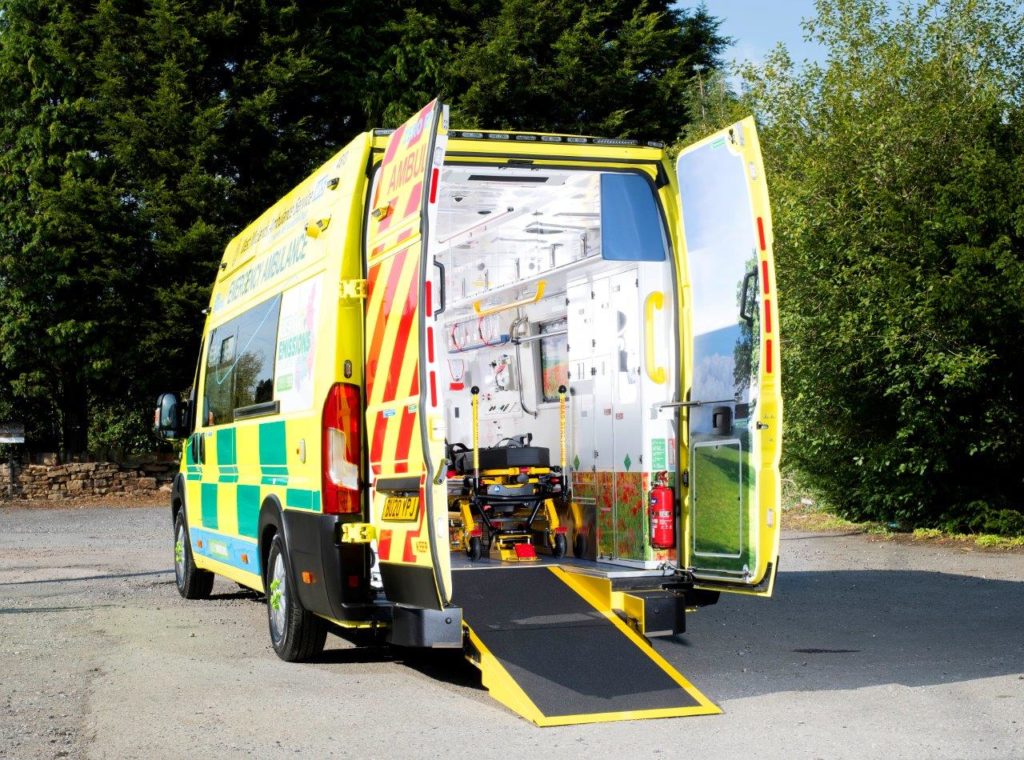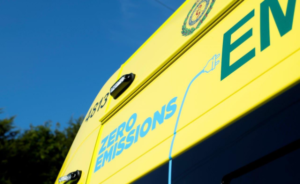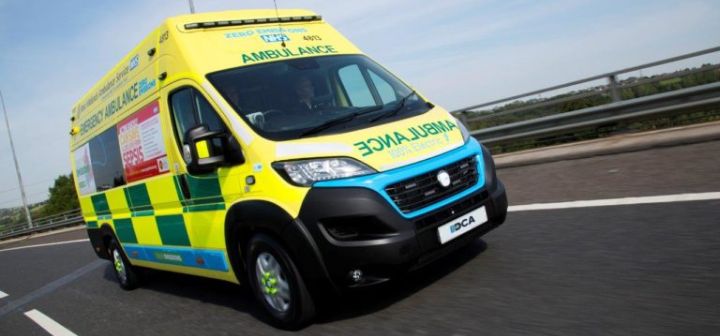The UK’s first fully electric ambulance has been launched in the West Midlands.
The Electric Dual Crewed Ambulance (E-DCA) was designed, developed and produced by Bradford-based Vehicle Conversion Specialists (VCS) and will be used in front-line emergency situations by West Midlands Ambulance service from October.
The E-DCA was developed using a lightweight ‘core capture’ construction method and employs zero-emissions powertrain technology developed by VCS parent company Woodall Nicholson Group.
Powered by lithium-ion batteries situated in the underside of the ambulance floor pan, the ambulance has a power output of 129bhp (96kW). Its electric range has been calculated to account for the normal use of in-built electrical and medical equipment during a typical use cycle for a front-line ambulance. Therefore, it can travel up to 110 miles on a single charge and has a recharge time of 4.25 hours.

According to VCS, the E-DCA, which has a top speed of 75mph, was designed within the Lord Carter report national specifications and therefore includes elements and features to ensure maximum versatility. These include a rear-door damp assist system, hospital chair gangway accessibility, intelligent run lock management, and an OLED graphical HMI keypad.
Furthermore, the vehicle is fitted with intelligent auxiliary power systems to ensure constant and uninterrupted power to all electrical medical equipment. The power supply for auxiliary systems is separate to the drivetrain and is identical to that fitted to a standard diesel-fuelled ambulance.
Anthony Marsh, chief executive of West Midlands ambulance service university NHS foundation trust, said: “By using aircraft-style technology we have created the most hi-tech and lightest ambulances in the country, which reduces our impact on the environment by reducing CO2 levels and ensures that patients receive the highest standards of safety and comfort.

“It is therefore a logical next step for us to be the first ambulance service in the country to introduce a fully electric ambulance.”
VCS said the E-DCA reflects emergency services operators’ desire to bring the sector in-line with the global demand for widespread zero-emission transport.
Mark Kerrigan, managing director at VCS, said: “As the world moves away from fossil fuels and towards a zero-carbon future, it’s important that the emergency services sector keeps pace.”





